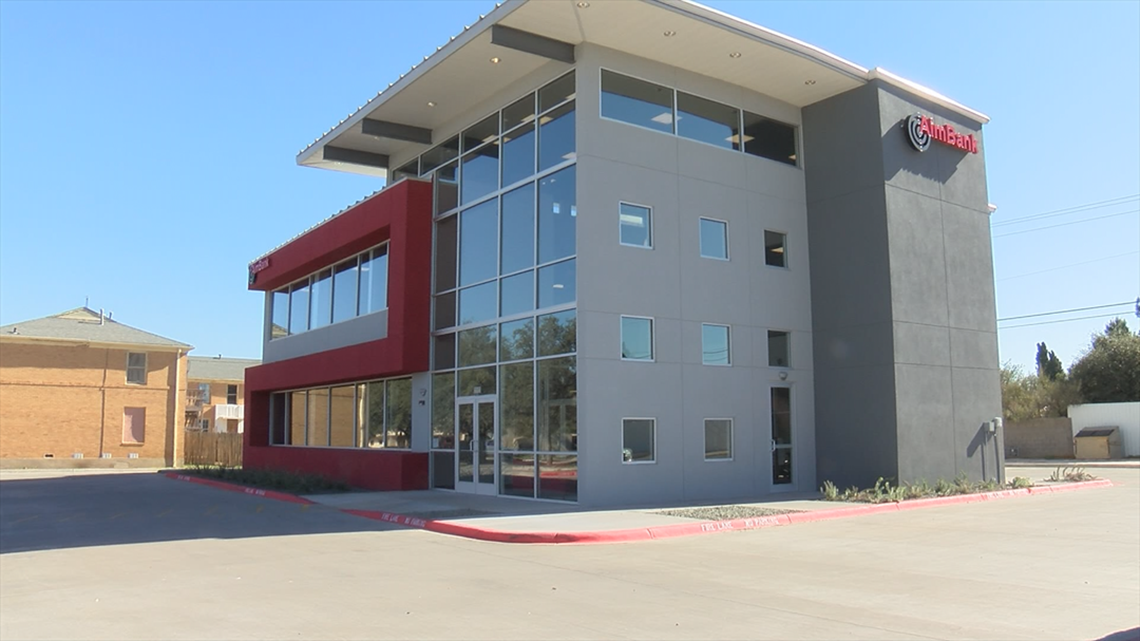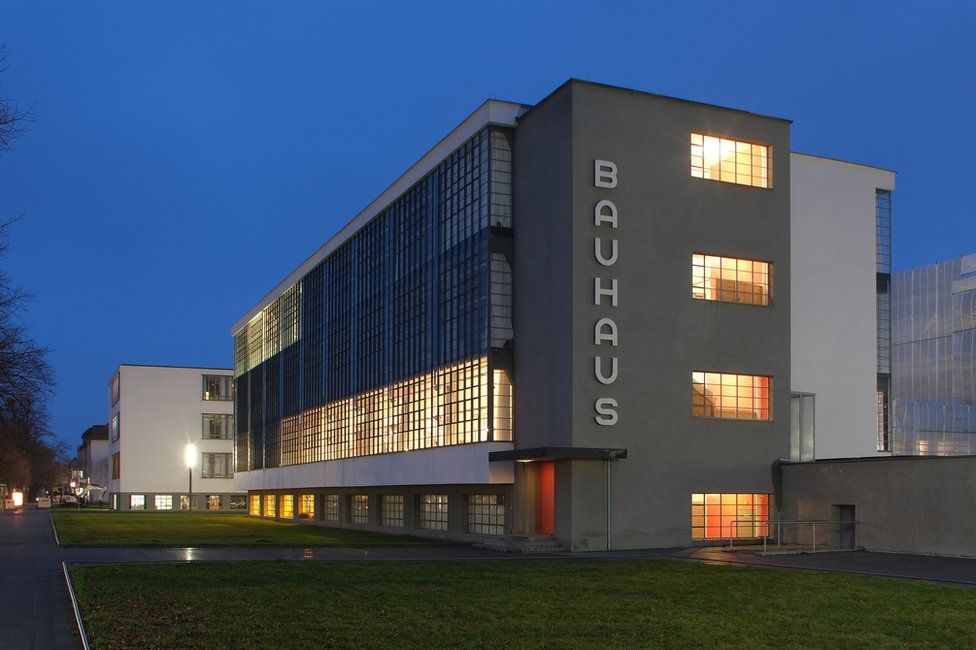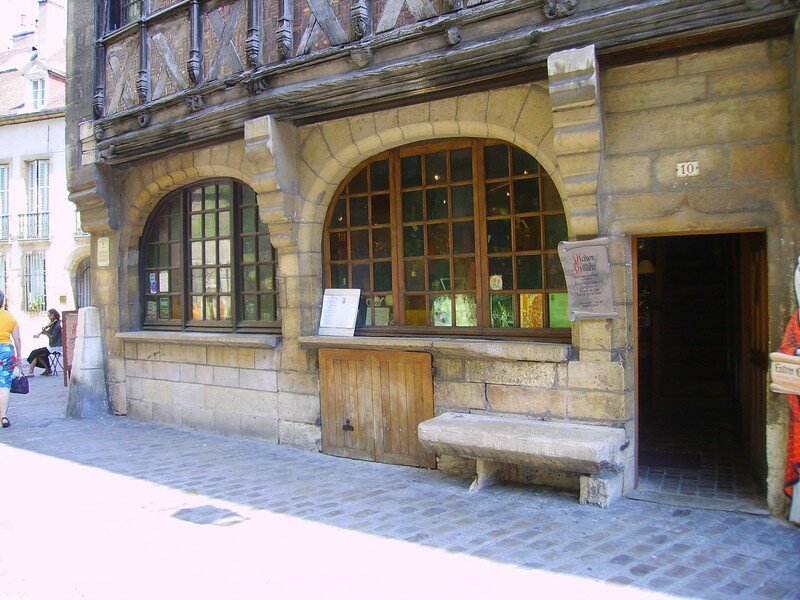-
 Warren
6Over time, architecture has the ability to transform society or communities. Society transforms architecture over time. If the subject and object impact each other to effect change, what would this relationship be called? Transformative architecture seems one way.
Warren
6Over time, architecture has the ability to transform society or communities. Society transforms architecture over time. If the subject and object impact each other to effect change, what would this relationship be called? Transformative architecture seems one way.
In some cases, this effect is extreme, such as indigenous populations being introduced into Western ways of living. The architecture has an enormous impact on their worldview. Alternatively, the architecture would be slowly transformed into what they need. Any insight would help greatly. Thanks. -
 Tom Storm
10.9kOver time, architecture has the ability to transform society or communities. Society transforms architecture over time. If the subject and object impact each other to effect change, what would this relationship be called? — Warren
Tom Storm
10.9kOver time, architecture has the ability to transform society or communities. Society transforms architecture over time. If the subject and object impact each other to effect change, what would this relationship be called? — Warren
Can you expand upon what you mean but the first two statements? It's not necessarily clear. How does architecture transform society over time - examples? Brief dot points are fine. And how does society transform architecture - examples? Are they analogous processes or different phenomena, with little or no relationship?
Digression - all over my town perfectly decent Californian Bungalows are being demolished to make way for vulgar 'French Provincial' style McMansions. The especially gaudy ones are McMansions with Cheese. Is it the case that people's self-esteem is so low that they need to take over an entire building block with a piece of crass overstatement to demonstrate their prosperity and taste (or lack there of)? It is certainly affecting the way I see my local area and it's like we're back in the 1880's. Will these garish Frenchies become attractive to the broader community over time, the way the overstated mansions of the Victorian era have? -
 Warren
6In colonialism, architecture plays a role in transforming the colonized society. The built environment has a large impact on how we work, live, and play. At a micro-level, the modern detached house is closely tied to the idea of the 'nuclear family.' Many cultures are not compatible with this idea. In this case, architecture is transformative.
Warren
6In colonialism, architecture plays a role in transforming the colonized society. The built environment has a large impact on how we work, live, and play. At a micro-level, the modern detached house is closely tied to the idea of the 'nuclear family.' Many cultures are not compatible with this idea. In this case, architecture is transformative.
Society impacts architecture. Changing values, fears and demographics all impact the design and function of the built environment. If the demographics or economic level changes, so does the built environment, such as gentrification.
I am not sure if this is analogous, but it is a unique relationship between society and the built form. This is why I am trying to find the right term for something that transforms at the same time being transformed.
Based on your digression, the architecture is impacted by trends that could have negative impacts. I think it is inevitable that people will eventually treat the French Provincial as the norm and part of the fabric. One thing I learned is that most people can not tell the difference between good and cheap wine. Those who can are few. -
 Tom Storm
10.9kOne thing I learned is that most people can not tell the difference between good and cheap wine. Those who can are few. — Warren
Tom Storm
10.9kOne thing I learned is that most people can not tell the difference between good and cheap wine. Those who can are few. — Warren
Yes, this enters into 'having a good eye' and the notion of good taste versus bad taste and do we believe in such transcendental narratives anymore?
If you haven't explore it already, you may find that phenomenology deals best with understanding the embodied experience of architecture (and anything else).
Having worked with Aboriginal Australians I can agree that the notion of a family home is very much tied to Western cultural norms and capitalism
I personally have always hated the family home model and the idea of segmenting the experience of living into discrete rooms with a specific purpose. Life is not an Ikea catalogue. -
 Gnomon
4.3k
Gnomon
4.3k
Architecture has always reflected, and attempted to lead, popular culture by converting idealistic academic concepts into practical material forms. For example, Gothic churches reflected the power and glory of the empirical Catholic church. At the same time, those churches were symbolic of the heavenly aspirations of the common people.Over time, architecture has the ability to transform society or communities. Society transforms architecture over time. If the subject and object impact each other to effect change, what would this relationship be called? Transformative architecture seems one way. — Warren
Again, in the early 20th century, radical architects --- inspired by the rise of Socialist aspirations for an egalitarian society --- attempted to transform their oppressive industrial cities with housing for factory workers. One proud and sad example was Corbusier's Unité d'Habitation in Marseille --- also known as Cite' Radiuse. Ironically, despite his radical modernist social and architectural intentions, the brutalist building was not appreciated by it's plebeian inhabitants. They quickly "transformed" the rigid structure to suit their pragmatic & esthetic needs, in part by building crude storage shacks on those colorful balconies.
Undeterred by such grotesque failures of top-down transformation, 21st century architects are currently spearheading social and environmental transformations in their architecture. One approach is dynamic structures than can grow & evolve over time -- sometimes even biologically. Yet, again most of the action is in top-down designs that appeal more to financial interests in novelty than to the conservative tastes of the hoi polloi.
Fortunately, there are still a few architects, including students --- who are not yet caught in the web of commerce --- who cater to the pragmatic needs of lower economic classes, even as they practice their high-brow art. Transforming the penurious "third world" counties in the US with free architectural services. :wink:
UNITE D'HABITATION before transformations by its inhabitants

ECO-MOLECULAR ARCHITECTURE bio-mimicry for the wealthy

RURAL STUDIO for impoverished counties

-
 Caldwell
1.3k
Caldwell
1.3k
Very attractive to me. The lines -- the glorious symmetrical lines.Again, in the early 20th century, radical architects --- inspired by the rise of Socialist aspirations for an egalitarian society --- attempted to transform their oppressive industrial cities with housing for factory workers. One proud and sad example was Corbusier's Unité d'Habitation in Marseille — Gnomon
Here's one my favorite German architectures:

-
 john27
693
john27
693
I'm seeing some parallels between art and arcitechture. Or maybe language, architecture can be used sometimes to describe something, to say something, like a monument of some sort.
If I had to coin a term, I'd say something along the lines of monumental culture, or physical language, or something like that. -
 Raymond
815In some cases, this effect is extreme, such as indigenous populations being introduced into Western ways of living — Warren
Raymond
815In some cases, this effect is extreme, such as indigenous populations being introduced into Western ways of living — Warren
What about western populations being introduced in indigenous ways of living? Florinda Donner wrote an excellent book about her experiences inside an Indian community in the Amazon area. She observed from a distance at first (being an antropologist) but little by little she gets drawn into the reality of the Indians.
Although her writings are controversial, she gave an vivid impression how life for an anthropologist could be in an indigenous community in the South American rainforrest. -
 Tom Storm
10.9kHere's one my favorite German architectures: — Caldwell
Tom Storm
10.9kHere's one my favorite German architectures: — Caldwell
Seems to be a matter of taste and timing. This minimalist, anti-ornate, geometric style has been a widely celebrated retro fetish for some years now. Almost every public building and school built in my town in the mid-century was inspired by Bauhaus or by Le Corbusier. Many torn down in the 1980's as they were widely hated as ugly, unsentimental, anti-human edifices. They have looked cool again for a couple of decades now and, like prostitutes, politicians (and Victorian buildings) seem to grow venerable with age. They photograph beautifully and in the right light almost makes them appear numinous. -
 Caldwell
1.3k
Caldwell
1.3k
I had a dream I was in a place with nothing but Hundertwasser building. Somehow I didn't feel at ease.Hundertwasser. — Raymond
Tom, it was an instant attraction of those buildings when I took art, and I couldn't look at other buildings such as Hundertwasser's in awe.Seems to be a matter of taste and timing. This minimalist, anti-ornate, geometric style has been a widely celebrated retro fetish for some years now. — Tom Storm -
 Raymond
815Architecture was and is considered of great importance to express state power and give people a sense of being submitted to the system. In modern-day cities, the dominance of global corporations and economy is expressed by huge towers baring the names of companies. They are usually created by architects without an milligram of fantasy, and mainly impress by size and a basic mathematical structure as the expression of an overwhelming power and mathematical efficiency, giving the individual a sense of utter unimportance.
Raymond
815Architecture was and is considered of great importance to express state power and give people a sense of being submitted to the system. In modern-day cities, the dominance of global corporations and economy is expressed by huge towers baring the names of companies. They are usually created by architects without an milligram of fantasy, and mainly impress by size and a basic mathematical structure as the expression of an overwhelming power and mathematical efficiency, giving the individual a sense of utter unimportance. -
 john27
693
john27
693
Little a bit of context: it's a scene from Cyrano de Bergerac with Gerard Depardieu, filmed in Dijon (well not the entire film just this scene was), where I was born. :cool: Cyrano de Bergerac is a traditional french play, really well known for its consistent use of rhyme and wit. Gerard Depardieu, is like, the best actor ever. It's basically two giants meeting up, creating a masterpiece and it happened here, in front of this tiny restaurant. If you have a decent literacy in french, I highly suggest you watch it. The word play is impeccable. -
 Raymond
815I had a dream I was in a place with nothing but Hundertwasser building. Somehow I didn't feel at ease — Caldwell
Raymond
815I had a dream I was in a place with nothing but Hundertwasser building. Somehow I didn't feel at ease — Caldwell
The dream reflects the unconscious longing for being in his paradise. Your not feeling at ease in his paradise reflects your attachment to the enormity of the architecture you are used to. It's a conflict between the place you want to be and the place you're born into. The tension expresses itself in the nightmare you had. You're afraid to break free but the longing is there.
Or you just don't like his buildings. They look if they can fall down because of a gentle push. -
 Tom Storm
10.9kArchitecture was and is considered of great importance to express state power and give people a sense of being submitted to the system. In modern-day cities, the dominance of global corporations and economy is expressed by huge towers baring the names of companies. They are usually created by architects without an milligram of fantasy, and mainly impress by size and a basic mathematical structure as the expression of an overwhelming power and mathematical efficiency, giving the individual a sense of utter unimportance. — Raymond
Tom Storm
10.9kArchitecture was and is considered of great importance to express state power and give people a sense of being submitted to the system. In modern-day cities, the dominance of global corporations and economy is expressed by huge towers baring the names of companies. They are usually created by architects without an milligram of fantasy, and mainly impress by size and a basic mathematical structure as the expression of an overwhelming power and mathematical efficiency, giving the individual a sense of utter unimportance. — Raymond
Of course. State/religious power has been expressed in buildings for much of known history, even before there were architecture and construction industries. You can see why Hitler wanted to be an architect. I was always struck by architect Albert Speer's observation that in building Third Reich structures they be made robustly, with the right materials so that even the ruins in 1000 years would look good. That's taking a vision right to its totalising climax. -
 Caldwell
1.3k
Caldwell
1.3k
I want to visit you in Dijon. :)Little a bit of context: it's a scene from Cyrano de Bergerac with Gerard Depardieu, in Dijon, where I was born. :cool: Cyrano de Bergerac is a traditional french play, really well known for its consistent use of rhyme and wit. Gerard Depardieu, is like, the best actor ever. It's like two giants meeting up, creating a masterpiece and it happened here, in front of this tiny restaurant. If have a decent literacy in french, I highly suggest you watch it. The word play is impeccable. — john27
I had a brush with de Bergerac. People told me. Will do. Thanks for a little background story.
Maybe you're right. I'm not adventurous enough to like his buildings -- a gentle push, in my mind, is enough to cause a fall.The dream reflects the unconscious longing for being in his paradise. Your not feeling at ease in his paradise reflects your attachment to the enormity of the architecture you are used to. It's a conflict between the place you want to be and the place you're born into. The tension expresses itself in the nightmare you had. You're afraid to break free but the longing is there.
Or you just don't like his buildings. They look if they can fall down because of a gentle push. — Raymond -
 Raymond
815
Raymond
815
Indeed. The architectures of totalitarian regimes look alike. Vast squares surrounded by homogeneous creations, a big front building from where the führer, duce, commandante, pope, tsar, king, or general speaks from a high balcony. Height, centrality, so everyone can see it. Like those damned corporate-elect buildings, with mouthpieces in government, directing the mass, by education and other propaganda, to think and behave as longed for. A depressing realization. -
 Caldwell
1.3k
Caldwell
1.3k
And so was the construction of banks -- in the past, banks were constructed with bricks and stones to make them appear like it's protecting the gazillion amount of cash in the vault inside. It's for appearances.I was always struck by architect Albert Speer's observation that in building Third Reich structures they be made robustly, with the right materials — Tom Storm
Modern bank building:

1980 Bank building:

Early architecture. US National Bank building:

Welcome to The Philosophy Forum!
Get involved in philosophical discussions about knowledge, truth, language, consciousness, science, politics, religion, logic and mathematics, art, history, and lots more. No ads, no clutter, and very little agreement — just fascinating conversations.
Categories
- Guest category
- Phil. Writing Challenge - June 2025
- The Lounge
- General Philosophy
- Metaphysics & Epistemology
- Philosophy of Mind
- Ethics
- Political Philosophy
- Philosophy of Art
- Logic & Philosophy of Mathematics
- Philosophy of Religion
- Philosophy of Science
- Philosophy of Language
- Interesting Stuff
- Politics and Current Affairs
- Humanities and Social Sciences
- Science and Technology
- Non-English Discussion
- German Discussion
- Spanish Discussion
- Learning Centre
- Resources
- Books and Papers
- Reading groups
- Questions
- Guest Speakers
- David Pearce
- Massimo Pigliucci
- Debates
- Debate Proposals
- Debate Discussion
- Feedback
- Article submissions
- About TPF
- Help
More Discussions
- Other sites we like
- Social media
- Terms of Service
- Sign In
- Created with PlushForums
- © 2026 The Philosophy Forum









